|

The miniature SER fixture can be easily attached to the rotational rheometer
host station and configured to operate with the existing control software.
By controlling the motor rotation and operating temperature of the host
station, the SER can be used to characterize extensional melt flow.
As illustrated by the data, the SER is a robust yet sensitive instrument
capable of characterizing the flow properties of ultra high viscosity
elastomers and low viscosity polymer melts in either a controlled rate
or controlled stress mode of operation.

As has been described, a
constant Hencky strain rate deformation is achieved by applying a
constant drum rotational speed with the SER. By collecting the time
and torque for a given temperature and rate, the data can be easily
converted to produce tensile stress growth curves.
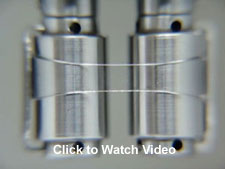
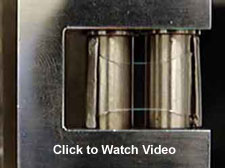
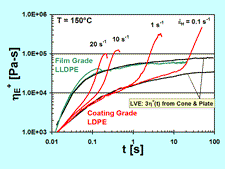
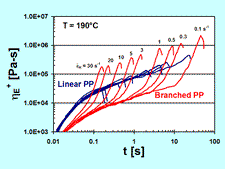
Because of the high degree of molecular orientation and polymer chain
stretch that can be achieved in simple extension, differences between
linear and branched polymer architectures are clearly evident from the
melt tensile stress growth data. Note the broad span of Hencky strain
rates and how the low strain portions of the tensile
stress growth curves superpose with the linear viscoelastic envelope
defined by the plot of 3 times the shear stress growth curves taken
from cone & plate measurements.
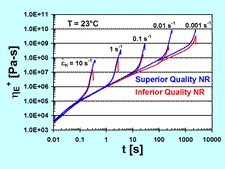
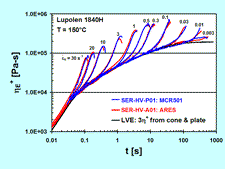
Even subtle differences in polymer architecture that are often difficult
to detect from shear rheology data are clearly evident from extensional
rheology data - a feature that makes the SER also well-suited
for even the most challenging of polymer quality control applications.
Regardless of the host platform being used, whether of controlled
rate or controlled stress/rate design, the SER provides
accurate and consistent results over a very broad range of extensional
rates and melt viscosities.
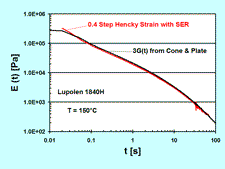
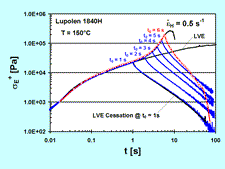
Although historically difficult to perform, the tensile stress
relaxation modulus of polymer melts can be easily and directly
determined from step extension experiments. Cessation of extension
experiments are useful in determining the strain dependence of
relaxation behavior and in studying the onset of elastic melt
instabilities.

Because the cross-sectional area of a sample undergoing uniaxial
extension decreases exponentially with deformation, the application
of a constant tensile creep stress requires the exponential decrease
of applied force as a function of deformation.
A feature unique to certain controlled stress/strain rotational
rheometers allows for the exponential decay of applied torque with
spindle rotation, enabling the SER to be used for extensional creep flow
measurements as well as tensile stress growth measurements
with polymer melts.
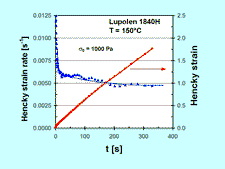
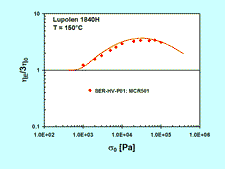
As illustrated by the data above, the SER is a robust yet sensitive
instrument capable of characterizing the flow properties of ultra
high viscosity elastomers and even low viscosity polymer melts in
both tensile stress growth and tensile creep modes of operation.

| 
